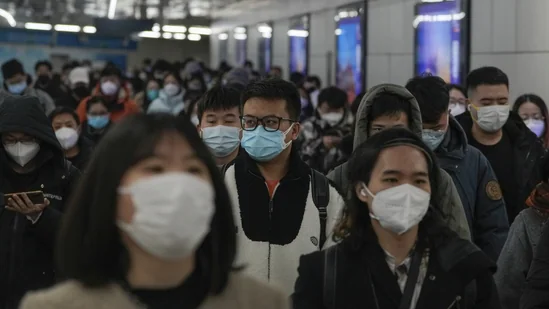Business is booming for China’s lemon farmers as millions in the Asian country turn to natural remedies in the face of a deadly wave of Covid-19 infections triggered by the government easing (in some cases completely removing) restrictions. One farmer told Bloomberg ‘the market is very much on fire’ and that sales had jumped to 20-30 tons a day in the past week – up from just five to six tons earlier. The farmer – who gave only his surname, Wen – grows lemons on 130 acres in Sichuan; the province produces 70 per cent of China’s lemons.
The sudden spurt is largely from the big cities – Beijing and Shanghai – where foods rich in vitamin C – to boost immunity levels – have become highly prized.
“Lemon prices have doubled in the past four or five days,” another farmer from the same province, Liu Yanjing, said.
Liu said he is now working 14 hours a day to deal with the rush.
Lemons are now selling for six Yuan (approx. ₹12) per 500 gm – up from two or three earlier. Sales of other fruits – like oranges and pears – are also soaring, according to local media. Canned yellow peaches are also in demand. One grocery store chain told Bloomberg sales had jumped by 900 per cent.
Last month, many of these farmers were anxious after previously stringent rules were leading to tons of fresh produce piling up due to curbs on transportation.
“… people have suddenly realised lemons are good… hope it will last,” Liu said.
The swing to lemons (and fruit) comes as pharmacies in cities run short of cold and flu medication – in what appears to be yet another example of how an unprepared public is dealing with the abrupt shift from the ‘zero Covid’ policy.
The dramatic change in policy has unleashed a near-literal avalanche of infections and deaths; epidemiologist and health economist Eric Feigl-Ding tweeted Monday to warn that over 60 per cent of the country’s population of more than 1.4 billion will likely be infected (or re-infected) in the next 90 days.
“Deaths likely in the millions – plural. This is just the start,” he tweeted.
Last week the Chinese government said it would stop releasing comprehensive data on new cases now that testing is no longer mandatory; ‘numbers no longer reflect reality’, it claimed.
China has reported no Covid deaths in Beijing since November 23.
However, a video shared by Feigl-Ding showed bodies stacked in a hospital, and The Wall Street Journal reported of similar scenes at a Beijing crematorium.
Feigl-Ding claims the goal is to ‘let whoever needs to be infected, infected, let whoever needs to die, die…’, with the reported intention being ‘early resumption of production’ led by ‘early infections… (and) peak… (and) deaths…’
Industrial output in China – a global manufacturing hub for everything from computer chips and clothes to consumer electronics – has been badly affected by recurring waves of Covid infections that have forced factories to shut down.
The government, it seems, is hoping this method – letting it run rampant through the population to allow healthy individuals to build immunity and then be able to work unhampered by restrictions – will be key to restoring normality.
However, many of China’s 1.4 billion remain vulnerable because of low vaccination (and) weak vaccines and a lack of investment in emergency care.























